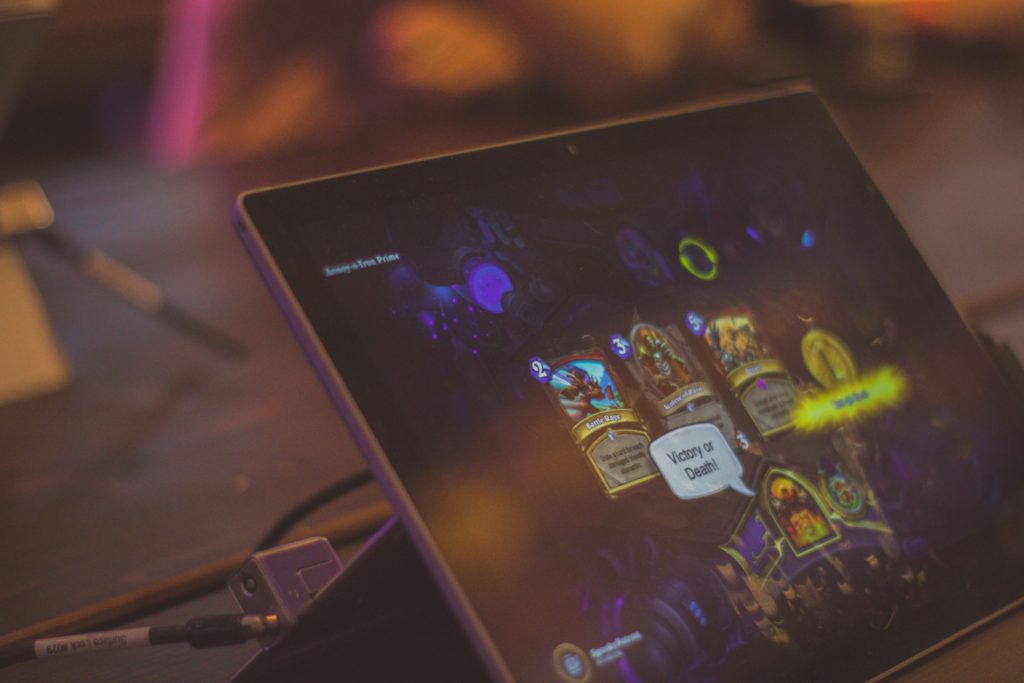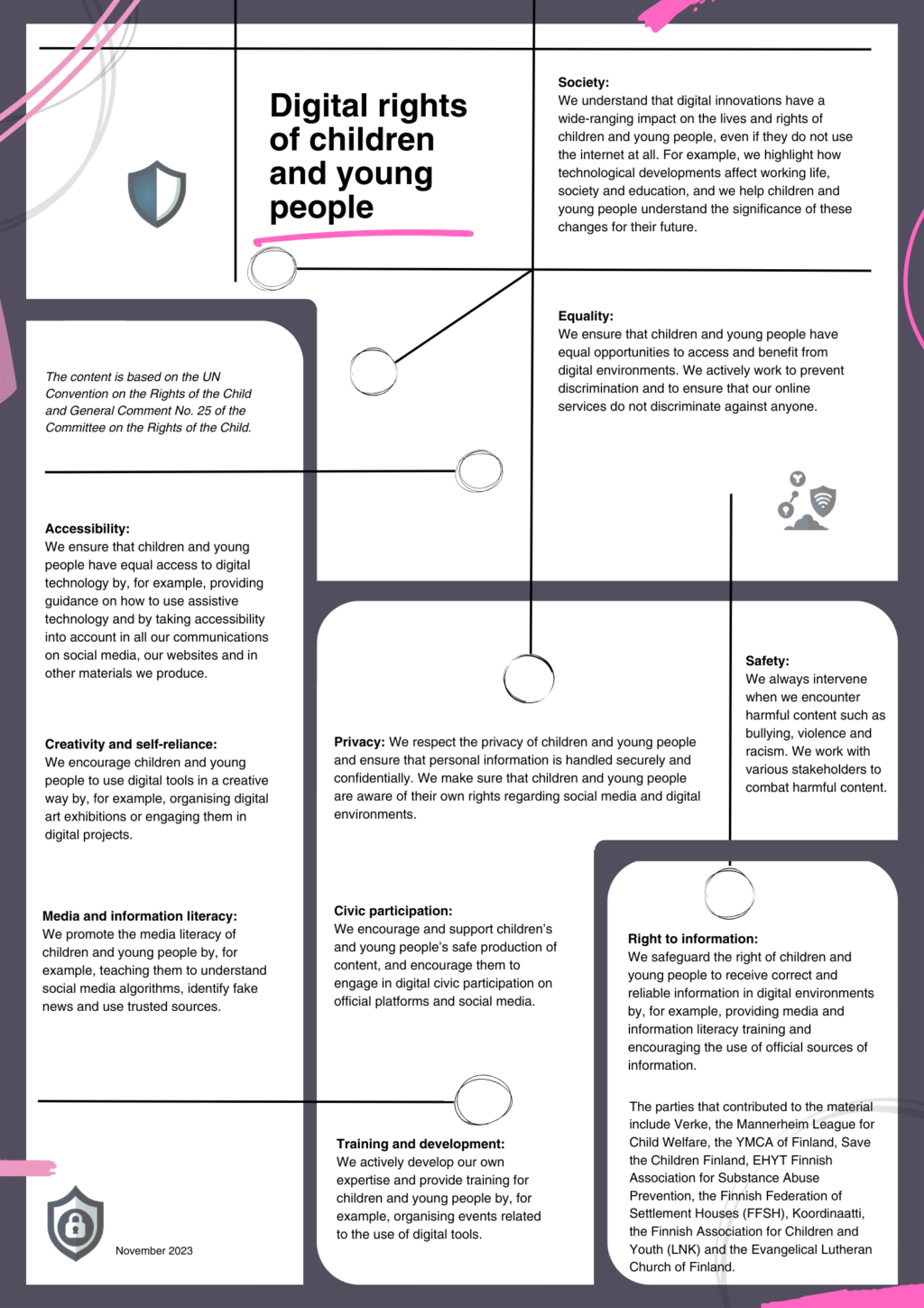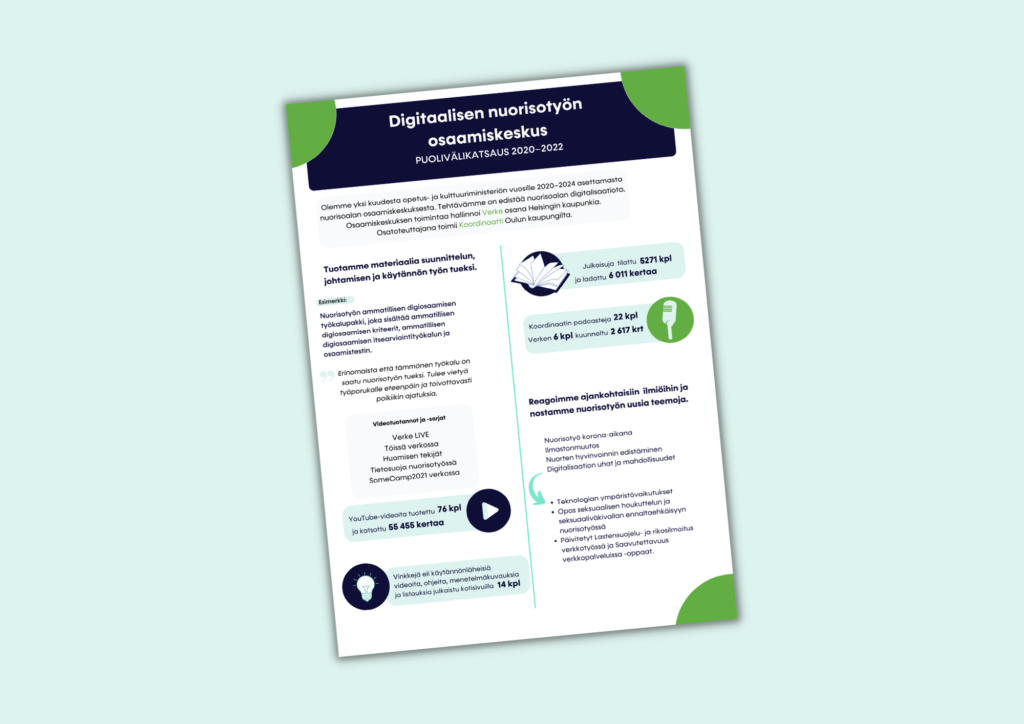The Non-toxic – non-discriminating gaming culture project published a report in November 2020 on the game education competence of guardians and youth work professionals. The responses from youth workers show that youth work can be used to have a positive impact on equality in gaming culture. The respondents would like to see more tools and means to support their own competence.
Every youth worker is a game educator. For a long time, games and gaming have been utilised in youth work activities. Youth work focused on games and e-sports is already being conducted in many locations. Games help youth work reach various targets both in open activities and work with individuals and groups alike. Games and gaming activities also enable youth workers to support independent activities by young people and activities across municipal borders with the help of online tournaments, for example.
The “Non-toxic – Pelikasvatusta kotona ja nuorisotyössä” (Non-toxic – game education at home and in youth work) report (Siutila, Miia 2020) examines how the hate speech, discrimination and harassment that young people face in games presents to their parents and youth workers and what means are employed to approach games and gaming at home and in youth work. These means also include ways of supporting young people in processing the disturbing behaviour they encounter as well as intervening in their own disturbing behaviour as they engage in gaming culture.
Digital gaming culture is not a subculture, but part of the mainstream, which almost all young people are a part of in some way or another. According to the 2020 Finnish Player Barometer, 79% of young people aged 10–19 play digital games weekly or more often, whereas roughly 45% of young people play every day. Anything related to gaming is game culture. This encompasses game design and coding as well as gamer events, professional e-sports and game character fandom, cosplaying and drawing game characters. Talking about games and gaming is also part of game culture.
Harassment in gaming
According to the Non-toxic report (Selvitys kilpailullisia tietokone- ja konsolipelejä pelaavien nuorten kokemuksista vihapuheesta ja häirinnästä, Alin, Ella 2018) published in 2018, up to 90% of young people had encountered negative comments in gaming. Of the young people that responded to the survey, 70% said that they had been harassed. Only 3% of the respondents said that they had not encountered harassment in gaming.
In a new survey aimed at educators and guardians, 55% of parents and 13% of youth workers reported that young people had not encountered harassment in games or gaming culture. As it stands, the majority of harassment and hate speech encountered or observed by young people remains unseen by educators and guardians.
Comparing answers provided by young people and educators and guardians also reveals that young people report racist, sexist and homophobic comments to educators far less frequently than they actually encounter them. The responses to the new report show that young people are more likely to report harassment encountered in gaming to youth workers than guardians.
In gaming, toxicity is used to refer to language and actions that discriminate against or disrupt other players. Research and gamer experiences show that in gaming culture, harassment and discrimination is often directed at the same groups of people as in other areas of society: women and girls, sexual and gender minorities, ethnic minorities and linguistic minorities. Getting wrapped up in emotions during gaming is not toxic as such, but it must not happen at the expense of others and manifest in sexist or racist comments.
Harassment, discrimination and hate speech are prevalent in all areas of culture. Harassment manifests in specific, characteristic ways in each area of culture. Pop culture, football culture or stand up culture all have their own challenges and solutions concerning harassment and discrimination. Gaming is no exception, which is why it is important that professional educators are involved in building a safer gaming culture.
Safer gaming culture is created through game education
Because nearly all young people are involved somehow in gaming culture, equality in gaming has widespread social significance. By fortifying a safer gaming culture, we can have an impact on the wellbeing of individual young people and equality among young people in society as a whole. Safety means the freedom to be yourself without fear of discrimination or harassment. In gaming culture, safety means the opportunity for young people to be themselves when they play and attend gaming events without having to hide their identity or be on guard all the time.
Current gaming culture often comes with an onslaught of harassing negative commentary, name calling and hate speech. Without game education and guidance on functional, positive and good communication within games, young people may internalise ways of communicating from games and gaming culture. It is easier for young people to adopt new ways of communication if they are able to discuss them with someone who is interested in gaming culture.
A good game educator does not need to be an expert in games; it is enough that they are interested in games and want to learn more about them. Educators can even ask young people for advice, information and help with gaming, games and devices. It is part of the expertise of youth workers to develop their own methods and support young people in understanding gaming culture and being able to engage in critical and constructive discussion on gaming culture. According to the youth workers who responded to the survey, processing feelings related to playing games is one of the best methods of intervening in harassment and changing the operating culture surrounding gaming. If you do not have personal experience of digital games, your personal memories related to games may help you understand the emotions connected with gaming, the experiences and the importance of games to young people.
Gaming is about having a good time, being in contact with friends, building your identity, a hobby and skill development. Playing games as such has value, which is why gaming should be made more open and safe. Everyone should have access to safe gaming and no one should have to endure harassment, even disguised as humour, or restrict their gaming due to hate speech or fear thereof. As educators, it is our shared responsibility to strengthen the methods of protecting themselves and others from harassment young people have at their disposal. It is important to encourage other players, examine gaming culture critically and constructively, and react and act in a way that builds a better gaming culture. Together, we can make gaming culture more equal.
Game educator tips for promoting equality:
- Youth workers do not need to be experts in games or gaming, instead, interest, excitement and a genuine willingness to commit to gaming is enough. Be interested, ask questions and discuss. It is much easier for a positive instructor who is interested in games to build trust with young people and influence their communication and behaviour within games.
- Bans, blocking and restrictions do not create a lasting change in operating methods. A more sustainable change is forged through discussions on the effects of toxic behaviour, better means of communication and the significance of cheering people on.
- Draft safe space rules for the gaming area together with the young people. The objective of safe space rules is to make everyone feel safe and welcome in the area. Rules illustrate how any unpleasant or disruptive behaviour can be addressed.
- Game with young people yourself. If you notice discriminatory or harassing communication or language, address it immediately with the young people.
- Intervene in harassment and discriminatory comments during the game, on discussion forums and at gaming events, even if they are directed at someone you do not personally know. Always communicate clearly that discrimination and hate speech are not acceptable.
The Non-toxic – non-discriminating gaming culture project is a national project coordinated by City of Helsinki Youth Services together with project partners. The project is funded by the Ministry of Education and Culture. The primary objectives of the project are strengthening educator competence in digital gaming culture, prevention of hate speech and discrimination, and creation of a safer gaming culture in cooperation with municipal youth work partners. In addition to this, the project also aims to promote non-discrimination and equality in e-sports culture in cooperation with e-sports organisations.
Project website and Twitter. Read the ‘Non-toxic – Pelikasvatusta kotona ja nuorisotyössä’ (Non-toxic – game education at home and in youth work) report in Finnish.
Sources and references:
Selvitys kilpailullisia tietokone- ja konsolipelejä pelaavien nuorten kokemuksista vihapuheesta ja häirinnästä, Alin, Ella 2018 https://www.hel.fi/static/nk/Julkaisut/non-toxic.pdf
Non-toxic – Pelikasvatusta kotona ja nuorisotyössä, Siutila, Miia 2020 https://hel.fi/static/liitteet-2019/KuVa/julkaisut/NonToxic251120.pdf
Finnish Player Barometer 2020 https://trepo.tuni.fi/bitstream/handle/10024/123831/978-952-03-1786-7.pdf?sequence=1&isAllowed=y






